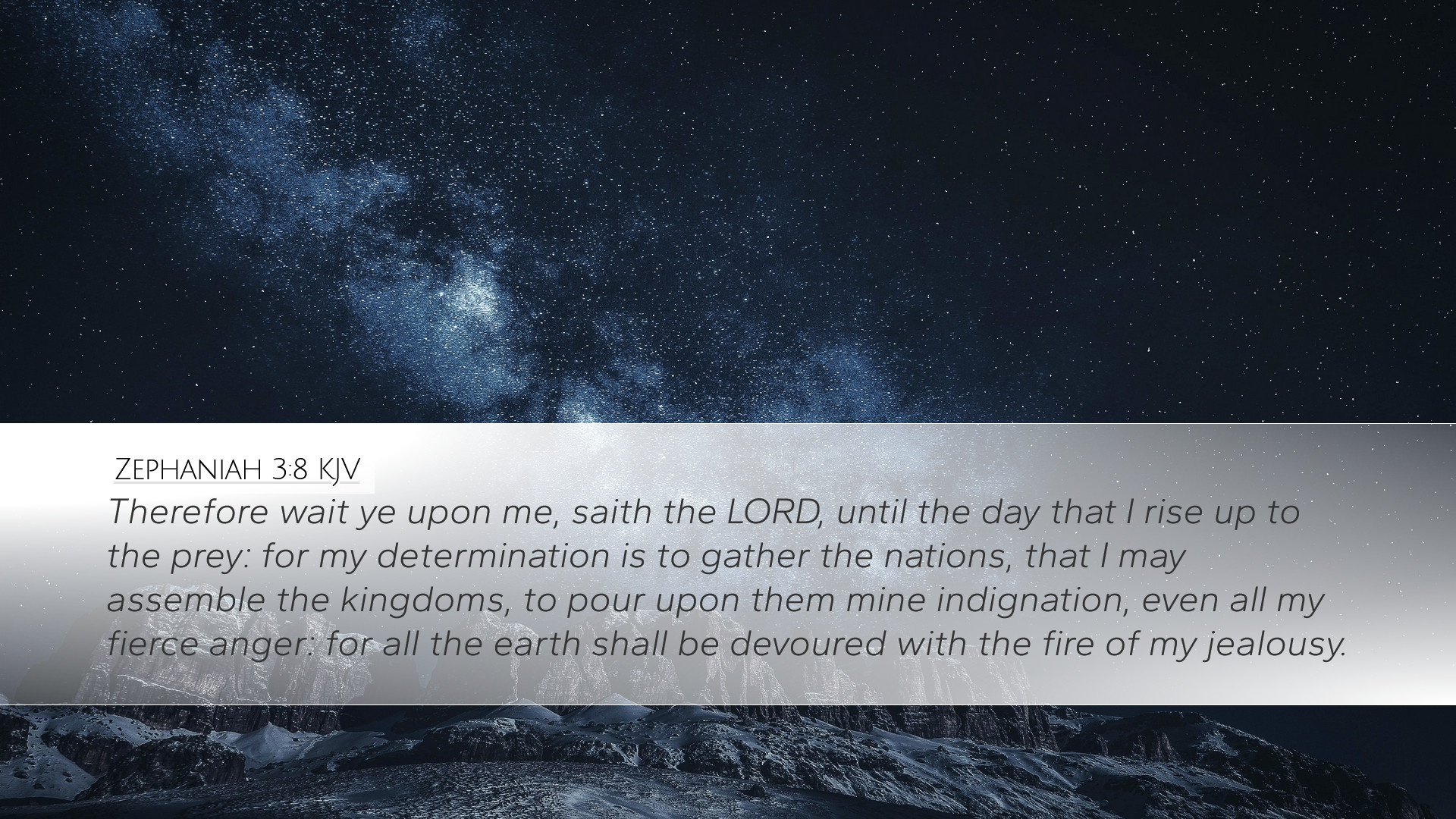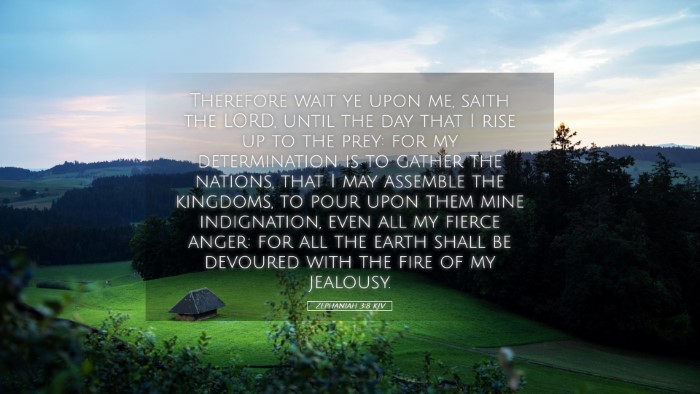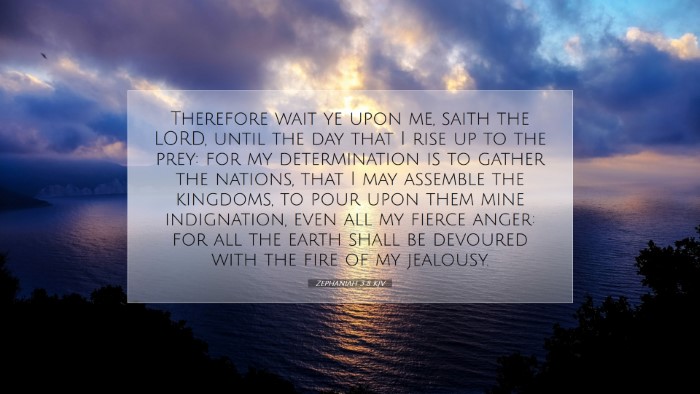Old Testament
Genesis Exodus Leviticus Numbers Deuteronomy Joshua Judges Ruth 1 Samuel 2 Samuel 1 Kings 2 Kings 1 Chronicles 2 Chronicles Ezra Nehemiah Esther Job Psalms Proverbs Ecclesiastes Song of Solomon Isaiah Jeremiah Lamentations Ezekiel Daniel Hosea Joel Amos Obadiah Jonah Micah Nahum Habakkuk Zephaniah Haggai Zechariah MalachiZephaniah 3:8
Zephaniah 3:8 KJV
Therefore wait ye upon me, saith the LORD, until the day that I rise up to the prey: for my determination is to gather the nations, that I may assemble the kingdoms, to pour upon them mine indignation, even all my fierce anger: for all the earth shall be devoured with the fire of my jealousy.
Zephaniah 3:8 Bible Commentary
Commentary on Zephaniah 3:8
Text of Zephaniah 3:8 (ESV): "Therefore wait for me, declares the Lord, for the day when I rise up to seize the prey; for my decision is to gather nations, to assemble kingdoms, to pour out upon them my indignation, all my burning anger; for in the fire of my jealousy all the earth shall be consumed."
Introduction
The verse in Zephaniah 3:8 encapsulates the momentous theme of divine judgment intertwined with hope and restoration. The prophet Zephaniah pronounces God's impending judgment against nations, while simultaneously asserting the future deliverance of His people. This duality of message is crucial for understanding the nature of God's dealings with humanity.
Contextual Background
Zephaniah prophesies during the reign of King Josiah in Judah, a period characterized by significant religious reform yet rampant idolatry. The backdrop of the Assyrian threat and impending Babylonian exile serves to heighten the urgency of his message. Zephaniah's audience is a blend of the faithful remnant and the wayward community, making his calls for both judgment and hope particularly poignant.
Analysis of Key Themes
Divine Judgment
1. The Nature of God's Anger: According to Matthew Henry, the imagery of God's "indignation" and "burning anger" signifies the intensity of God's response to sin and injustice. This reflects the holiness of God and His intolerance for wickedness.
2. The Day of the Lord: This terminology indicates a specific time of divine intervention. Albert Barnes notes that this is a future event where God decisively acts against the nations in judgment, thus demonstrating His sovereign authority over all creation.
Hope and Restoration
While the primary focus is on judgment, Adam Clarke offers an important perspective on the promise of restoration amidst the calamity. The call to "wait for me" embodies an invitation for patience and trust in God's ultimate plan, encouraging a posture of expectation among His people.
Theological Implications
The juxtaposition of judgment and mercy in this passage has profound theological implications. It emphasizes the idea that God's justice is always accompanied by His mercy. As Barnes suggests, while judgment may be severe, it is also corrective, aimed at bringing repentance and restoration to His people.
Applications for Today's Believers
The exhortation to "wait for me" serves as a vital reminder for contemporary believers. In a world filled with turmoil and injustice, this verse invites Christians to remain steadfast in faith and trust in God's timing. Matthew Henry poignantly states that believers are called to look beyond immediate circumstances to the ultimate fulfillment of God's promises.
Conclusion
Zephaniah 3:8 stands as a powerful verse illustrating the balance of divine justice and mercy. For pastors, students, theologians, and scholars, this passage serves as a warning against complacency in sin, while simultaneously encouraging a hopeful longing for God's redemptive acts. In acknowledging the seriousness of God's judgment, believers find profound comfort in His promises for a future restoration, awaiting the day of His ultimate victory over all creation.


